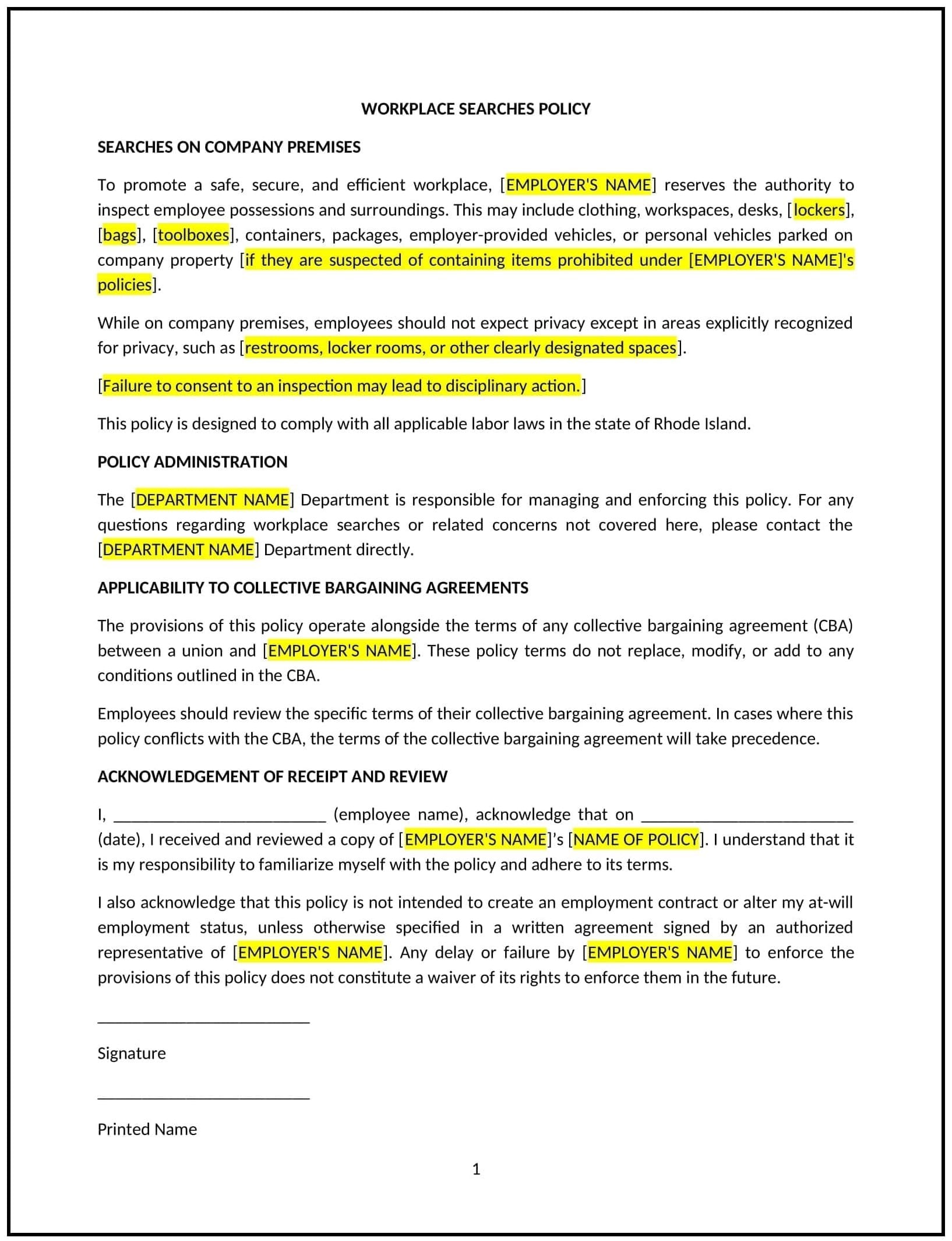Workplace searches policy (Rhode Island): Free template
Got contracts to review? While you're here for policies, let Cobrief make contract review effortless—start your free review now.

Customize this template for free
Workplace searches policy (Rhode Island)
This workplace searches policy is designed to help Rhode Island businesses maintain a safe and productive environment by outlining the circumstances under which workplace searches may be conducted. It supports compliance with Rhode Island laws and promotes transparency between employers and employees regarding search procedures.
By implementing this policy, businesses can address safety concerns, prevent misconduct, and promote trust among employees.
How to use this workplace searches policy (Rhode Island)
- Communicate the policy: Inform employees about the workplace searches policy during onboarding and provide a copy for reference.
- Define acceptable search circumstances: Clearly outline the situations in which searches may be conducted, such as suspected theft or safety concerns.
- Establish consent guidelines: Specify whether employee consent is required for searches and how it will be obtained.
- Protect employee privacy: Ensure searches are conducted respectfully and avoid unnecessary intrusion.
- Train managers: Provide guidance to supervisors on implementing searches in compliance with Rhode Island laws.
- Review and update regularly: Adapt the policy to reflect any changes in state laws or business needs.
Benefits of using this workplace searches policy (Rhode Island)
- Promotes workplace safety: Helps prevent illegal activities and ensures a secure environment.
- Supports compliance with Rhode Island law: Aligns with legal requirements for conducting workplace searches.
- Enhances transparency: Builds trust by clearly communicating search policies to employees.
- Reduces legal risks: Minimizes the likelihood of disputes related to searches.
- Improves organizational integrity: Ensures fairness and consistency in handling workplace concerns.
Tips for using this workplace searches policy (Rhode Island)
- Notify employees in advance about the policy and its purpose.
- Conduct searches only when necessary and in accordance with the policy.
- Document the reason and outcome of each search to maintain transparency.
- Seek legal counsel to ensure the policy aligns with Rhode Island laws.
- Respect employee dignity and privacy during all search procedures.